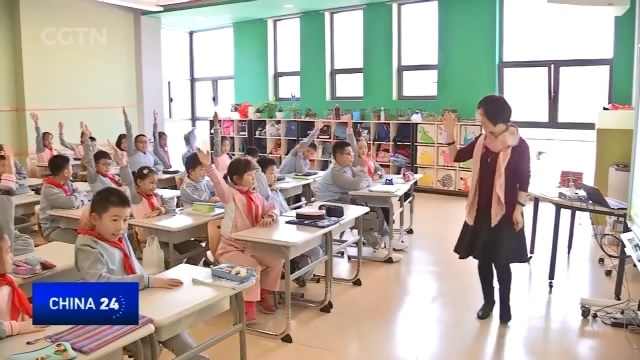
21:32, 16-Apr-2018
After-School Tutoring: Schools across China offer after-school care services

There have been calls for the government to ease the pressure of young students. But how are dual income households dealing with shortened schooling hours? ZHENG CHUNYING has more.
As part of the government's effort to reducing the stress students face. Elementary school students across China are now able to go home as early as half past three in the afternoon. Good news indeed for many children. But a nightmare for working parents as they now have to find ways to manage this free time. To tackle this problem many schools in Beijing have now come up with a solution. They are providing their own after-school care service, allowing children to sign up for different activities before their parents pick them up after work.
"This not only aims to help parents look after their children, but also open up more possibilities for the children, with more platforms to develop their talents and hobbies. We even encourage parents to join in these after-school activities sometimes, in order to better help their children grow up."
Such after school programs enable children to learn new skills, deepen existing expertise, and sometimes even help realize a certain potential.
SHEN YANG TABLE TENNIS COACH "The daily training from 3:30pm-6:30pm. During this period, we can find many gifted talents in table tennis!"
The demand of after-school care has been increasing in many countries. Take Japan for instance. The number of after-school care organizations in 2017 reached 24-thousand, with one teacher looking after at least 20 students.
It's only natural for parents to want to make sure that their kids are in a safe and structured place, exploring different areas of talent. And for some of them, they don't even have to leave school to do that. ZHENG CHUNYING CGTN.

SITEMAP
Copyright © 2018 CGTN. Beijing ICP prepared NO.16065310-3
Copyright © 2018 CGTN. Beijing ICP prepared NO.16065310-3